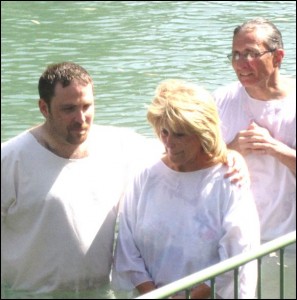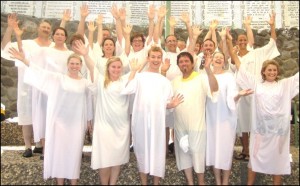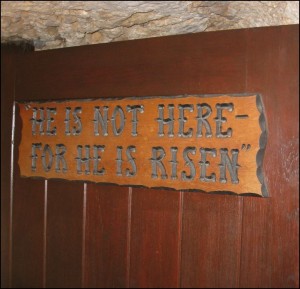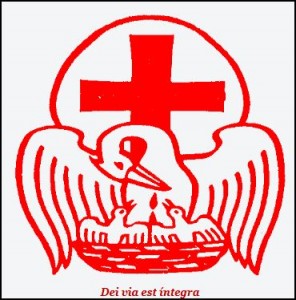Baptism is often identified with the rituals of purification in the Old Testament and I think one might identify some interesting  parallels. Leprosy was frequently used as an illustration for sin in the Bible because of its defilement of the person as well as those around him because it was highly contagious. Once declared clean by a priest, a healed leper would then perform the ritual of water purification and would then be accepted into the corporate worship of the community.
parallels. Leprosy was frequently used as an illustration for sin in the Bible because of its defilement of the person as well as those around him because it was highly contagious. Once declared clean by a priest, a healed leper would then perform the ritual of water purification and would then be accepted into the corporate worship of the community.
Elisha instructed Naaman, the Gentile, to “immerse” himself into the Jordan River 7 times. Naaman was profoundly offended and needed encouragement from his servant to submit to such an illogical instruction. After all, there were many better rivers in his own country. But none of those rivers could do what a simple act of obedience could accomplish with respect to the Jordan river. It was there Naaman must be baptized, there was no other river offered, he would either accept and obey or reject and disobey. The Jordan was symbolic of the God of Israel and Naaman had to, by his action, denounce every other option. There are always the two options. Faith and obedience go together. Disbelieve and disobedience are Siamese twins. They cannot be separated. It’s not the Jordan River that’s the step of obedience regarding baptism today; it’s the simple obedience to the ordinance that was commanded by Jesus. The simple step of obedience for Naaman was an act of faith. Even though he had to be coerced and convinced to do it by his own servant, it was still an act of faith. Through that act of faith Naaman was healed. It sealed his destiny! He took with him a load of soil from Israel so he could always worship the God of Israel from that time onward. This pagan was solidly converted and his act of obedience was all that was needed.
Have you enjoyed the symbolic act of purification of believer’s baptism? Like Naaman, it’s often humbling for us, but the instructions and the example of Lord is paramount in this respect. Just like Naaman, you have a choice.
Chuck
“Go, make disciples, baptizing them and teaching them to observe all that I’ve commanded you.” Matt 28:19-20









